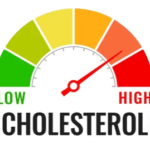When following a ketogenic diet, there are certain foods you should avoid or limit due to their high carbohydrate content.
Here is a list of foods to avoid on a keto diet:
1. Grains and Starches:
Avoid all types of grains, including wheat, rice, oats, corn, and barley. This includes bread, pasta, cereal, and rice.
2. Sugary Foods:
Stay away from sugary foods and beverages such as soda, fruit juices, candy, cakes, cookies, ice cream, and other sweets.
3. Fruits:
While fruits are generally healthy, many of them contain high amounts of natural sugars. Therefore, it’s best to avoid or limit fruits such as bananas, apples, oranges, grapes, and tropical fruits.
4. Legumes:
Legumes like beans, lentils, chickpeas, and peas are high in carbohydrates and should be avoided on a keto diet.
5. Root Vegetables:
Starchy vegetables like potatoes, sweet potatoes, carrots, and parsnips are high in carbs and should be limited.
6. Sugary Condiments:
Be cautious of condiments and sauces that contain added sugars, such as ketchup, barbecue sauce, and sweetened dressings.
7. Low-Fat or Diet Products:
Avoid low-fat or diet products as they often contain added sugars or artificial sweeteners to compensate for the reduced fat content.
8. Processed Foods:
Highly processed foods like chips, crackers, packaged snacks, and pre-packaged meals are usually high in carbs and unhealthy fats.
9. Alcohol:
Alcoholic beverages are generally high in carbs. Beer, sweet wines, and mixed drinks with sugary mixers should be avoided. If you choose to drink alcohol, opt for spirits like vodka, gin, or whiskey, and mix with sugar-free options like soda water or diet soda.
10. Unhealthy Fats:
While healthy fats are encouraged on a keto diet, it’s important to avoid unhealthy fats like hydrogenated oils, margarine, and trans fats found in processed and fried foods.
The key principle of a keto diet is to restrict carbohydrate intake and focus on consuming moderate amounts of protein and high amounts of healthy fats. It’s always a good idea to consult with a healthcare professional or registered dietitian before starting any new diet to ensure it aligns with your specific health needs and goals.


